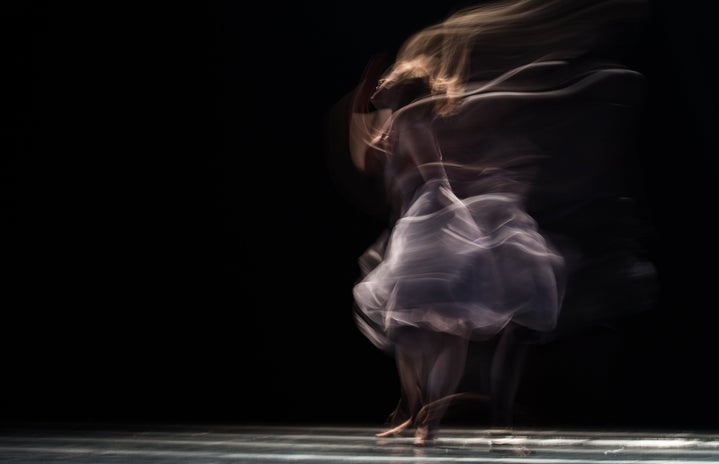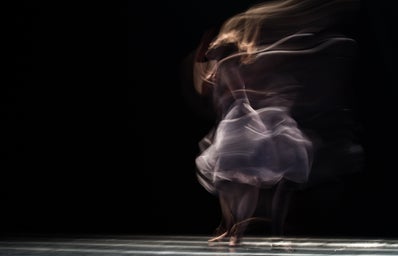I think I was around four years old when my persistent dancing around the house and obsession with Angelina Ballerina resulted in my parents enrolling me in dance classes at the local studio. Not long after I turned eight, I became a student at a more prestigious school and began training in classical ballet. From then on ballet became a major part of my life. By the time I was 18, there were even some weeks where I danced every day for up to 19 hours a week.
When you hear the word “ballet”, what do you imagine? Four-year-old me pictured lots of pink tulle and endless twirling with ribbons, and although this isn’t necessarily an incorrect presumption, I eventually came to realize just how much of a facade the “beauty” of ballet really was. Some days I truly did feel as though I was living out my childhood dream. But there were also plenty of days that felt like more like a nightmare.
Don’t get me wrong. Dance will forever be a passion of mine. But the world of classical ballet is as famous for its rigidity as it is for its tutus, and my ten years in this environment taught me much more than how to point my toes.
Here are three of the most important lessons I learned during this time.
- Food is Fuel
-
This one sounds obvious. I know. Because if food isn’t fuel, what is it? An accessory? A set piece? But believe it or not, there was a time when I was unable to make this connection. Eating disorders are unfortunately common in the ballet world and considering how your “thinness” is often considered to serve as the backbone for your gracefulness, it is fairly common to hear comments made towards people’s bodies from dancers and teachers alike. Although I never experienced being told I needed to lose weight, rehearsals oftentimes consisted of long hours without any breaks for food. Sometimes I never ate anything until after rehearsals were over out of fear of being yelled at for not paying attention. It wasn’t until my last year of dancing that I became able to associate calories with success: unless I consumed enough energy, my performance suffered greatly. If I wanted to give it my all when I stood on stage, it was crucial that I overcome this mindset of fearing the very thing that gave me strength.
- The Mirror is Not My Enemy
-
It’s pretty standard for any dance studio in the world to have enormous, floor-to-ceiling mirrors. Without them, it would be impossible to have an idea of what your form looks like or to apply the corrections your teachers give you. They are not, however, there for you to use them to scrutinize your physical appearance. When I was younger I knew how to use my reflection as an aid to improve my technique. But the older I got I found myself fixating on my physical flaws rather than my dancing, and I eventually reached a point where I no longer wanted to even look in the mirror during class. This wasn’t an option though, and it took me a few years before I relearned how to use the mirror more objectively. Even now when I’m not dancing I do my best to view my reflection as a whole rather than fixating on things that shouldn’t matter.
- Acceptance is Key
-
Ballet isn’t typically seen as something that belongs to the same realm as competitive sports, but it has a fair amount of similarities. Normal classes didn’t result in too much rivalry but show seasons were a whole different story. Tensions ran high right from the day choreography was introduced to the day official castings were announced. Even after parts were finalized it wasn’t rare to have your friends treat you differently based on what roles you got or hear snide comments about who deserved what part more. I was always grateful for the parts that I did receive, but I saw too many friendships around me suffer as a direct result of some people taking castings somewhat personally. If I did everything I could and still wasn’t cast I found it far less stressful to simply accept what had happened and focus my attention solely on the role(s) I was expected to fill.
Despite all this, I never stopped loving ballet. Dancing was and still is one of my favorite ways to express myself. Like any art form, the process of attaining “beauty” is a difficult one. But nothing feels more freeing than learning to overcome the hurdles that keep you from reaching your full potential.



